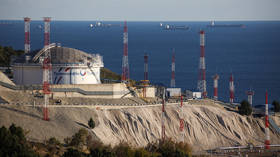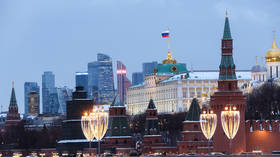Russian oil revenues continue to grow – Bloomberg

Russia’s revenues from oil exports surged by almost 50% last month compared to a year ago as prices for the country’s flagship Urals grade soared and producers adapted to Western sanctions, Bloomberg reported on Wednesday.
Moscow’s income from crude sales rose with oil-related taxes climbing to 590.6 billion rubles ($6.7 billion) last month compared to 402.8 billion rubles ($4.5 billion) in June 2023, according to Bloomberg calculations based on Russian Finance Ministry data.
Total oil and gas profits grew by 41% to 746.6 billion rubles ($8.4 billion), the data showed.
According to the outlet, the surge has been attributed to higher prices for Russia’s key export Urals blend. The ministry calculated June taxes based on the Urals price of $67.37 a barrel, up from $53.50 a year ago.
Urals’ discount to the global Brent benchmark has declined, despite the $60 per barrel price cap on Russian oil introduced by the G7 and EU.
Western governments imposed the price cap along with an embargo on Russian seaborne oil in an effort to hit the country’s economy, while at the same time keeping Russian crude flowing to global markets. The sanctions were imposed in December 2022 and were followed in February 2023 by similar restrictions on exports of Russian petroleum products.
In response, Russia has rerouted most of its energy exports to Asia – particularly to India and China, where the country’s oil has been sold well above the West’s price cap.
EU officials have repeatedly acknowledged that Moscow has been successfully sidestepping the cap, as “almost none” of the crude shipments have been sold at or below the price limit, dealing a blow to Western efforts to curtail Russia’s energy revenues.
Last month, finance ministry data showed that Russian budget revenues from oil and gas had soared by 73.5% between January and May this year, compared to the first five months of 2023. Proceeds from oil and gas sales hit 4.95 trillion rubles ($55.7 billion) in the first five months of the year.
Russia expects oil and gas earnings to reach 10.99 trillion rubles ($125 billion) this year, according to finance ministry data.













